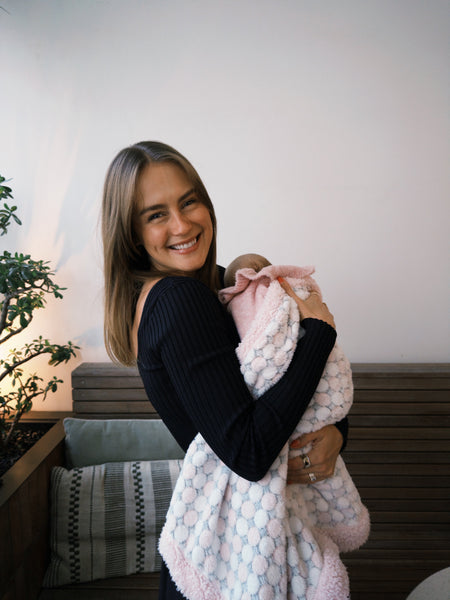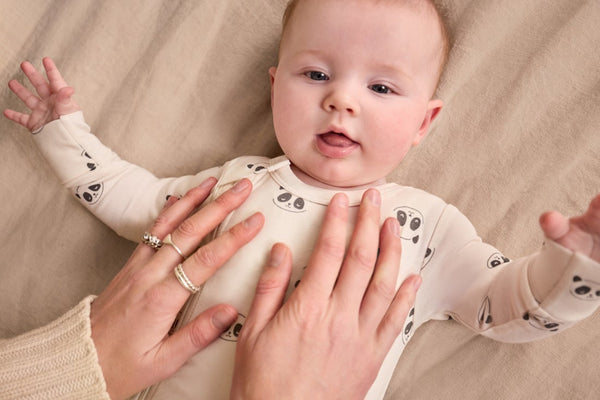How long should a newborn be awake for?
On average, newborns will be awake for between one to two hours at a time. However, every child’s sleep pattern is different, so it’s important to remember to listen to your baby’s cues.
Why do newborns sleep in short bursts?
Newborns sleep in short bursts for a wide range of reasons.
Hunger:
A newborn’s stomach is small, so they will wake every two to four hours to feed. You don’t need to wake up your child to feed unless advised to do so by a medical professional.
Overstimulation:
Overstimulation occurs when newborns are swamped with sensation, noise, and activity. For example, if a newborn baby has been cuddled by lots of new people.
Signs of overstimulation include:
- Crying.
- Turning their head away from you.
- Clenching their fists.
- Kicking.
- Tiredness.
When your newborn is overstimulated, they might struggle to sleep. Comforting them in a familiar and quiet space will help to calm them down.
Needing to be changed:
Sometimes, babies will wake up as they need to be changed. Ensuring they have been changed before sleep can prevent this.
Discomfort:
Newborn babies haven’t yet developed mature sleep cycles and will wake up when feeling discomfort. This might be from feeling too warm or too cold.
Our Clothing guide is a great way to check you have chosen the right product for the temperature and season.
How to establish a good newborn sleep routine
At Love To Dream™, we’re committed to helping families on their sleep journey. From creating a safe sleeping environment to swaddling your baby, learn how to establish a newborn sleep routine below.
Create a safe sleep space
By putting your baby down in the same place each time, whether that’s a cot or bassinet, you’re reinforcing the message that it’s time to sleep. To create a safe sleeping environment, always follow the below steps:
- Sleep in the same room as your newborn.
- Remove toys, blankets, and other choking hazards from their bassinet or cot before sleep.
- Ensure the mattress is clean, flat, and dry.
- Put your baby to sleep on their back with the face uncovered.
- Never co-sleep with your child.
Prepare the room for sleep
It’s important to create a relaxing environment to signal naptime. For instance, you can dim down the lights, close the curtains, or use white noise to settle your little one.
You don’t need to worry too much about being quiet during your baby’s naptime in the day, as getting them used to a little noise is a good way to help them to learn to sleep under different conditions.
Swaddle your baby
At Love To Dream™, we’re famous for our award-winning Swaddle UP™. With unique wing tips that enable your child to sleep in a more natural ARMS UP position, it’s designed to help babies learn how to self-soothe and in turn, develop a healthy sleep routine.
You can find the right style and fabrication according to the season with our handy Clothing guide. Layer over our newborn babywear crafted from soft, stretchy fabric for easy nappy changes and comfortable sleep all year round.












